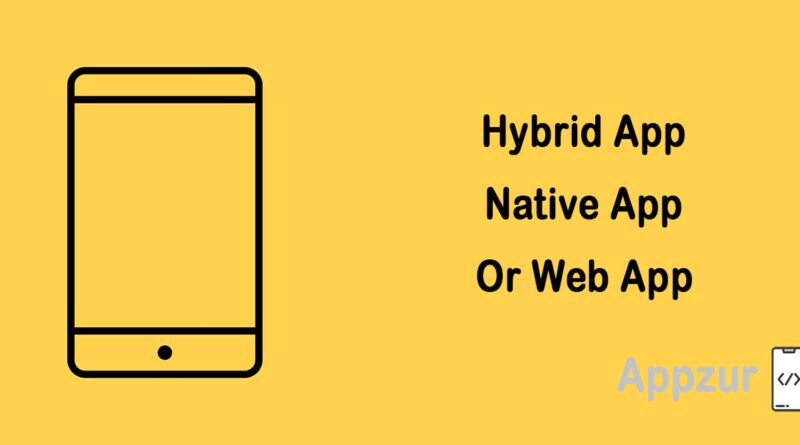Hybrid APP, Native APP Or Web APP: 5 Advice To Help You Choose
Undoubtedly 2020 will go down in history due to the pandemic but also in our sector the great boom in app development that we have experienced will also be remembered. We are not exaggerating if we say that the number of mobile application development has multiplied.
The digital transformation is a lifeline for companies. From traditional businesses to new concepts. The social distance imposed by the pandemic has awakened the ingenuity of entrepreneurs but also of businessmen who have detected needs and turned them into opportunities.
However, the next obstacle that usually slows down the decision to develop an app as a business model is the type of technology, the app model that you want to have. That is, decide if what we are going to develop is a native app, a hybrid app or a web app.
Faced with this dilemma, today, we give you 5 tips when choosing one type of application or another that we hope can help.
1. Budget
It is true that of the 3 options between native, hybrid and web app, the first of all is the most expensive. Developing a native app takes more time and programming work and therefore the budget will be much higher.
One of the determining factors to discard this type of application development is precisely the budget you have.
2. Functionalities
One question we always ask is what technology your application will need to offer. If it is not necessary for your application to access the hardware of smartphones, it may not be necessary to develop a native app and a hybrid app or web app will serve you.
If you do not require functionalities such as GPS, camera, geolocation, etc. Remember the example we saw of the hybrid Instagram or Uber app. Concepts that do not require as much development as native apps but that do access the functionalities of the app’s terminals.
3. Needs
If your app will be used to make restaurant reservations, it may not be necessary to develop a native app that takes up space on your user’s smartphone.
When we talk about developing applications, we must strictly adhere to the needs that we are going to respond to. The application must be functional and sometimes the fact of accessing from the browser is more practical for the user experience than having to download an app.
4. User experience
There is no one type of application that offers a better user experience than another. That is, by opting for a web app, your user experience should not be worse than the native app. In fact, perhaps for a specific need the user experience is better precisely through a browser.
For example, it is very annoying to try to access a link from a marketplace and it forces you to download the app from the store. If it were a web app, you could see that product without breaking the purchase journey.
5. Development time
This is a very important piece of information to take into account since native apps, for example, require more development and therefore more time to create.
If the solution you want to create requires a much shorter delivery time and subsequently continue to evolve in short terms, perhaps the choice is to bet on a technology that allows you to do so.
Focus on the application development type that will make it easier for you to adjust the targets to your business times, covering the previous points that we have mentioned: budget, functionalities, needs and user experience.
As you can see, you don’t have to choose a specific type of application without thinking about it, but cover what you want to offer to your users. The fact of making a different app does not mean that it is worse. A good team of app developers will know how to advise you when deciding on one app development or another.
The only thing you should obsess about is meeting the needs that you have set out to offer and this should mark your choice between a native app, a hybrid app or a web app.




